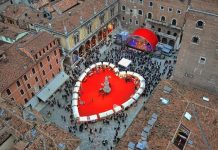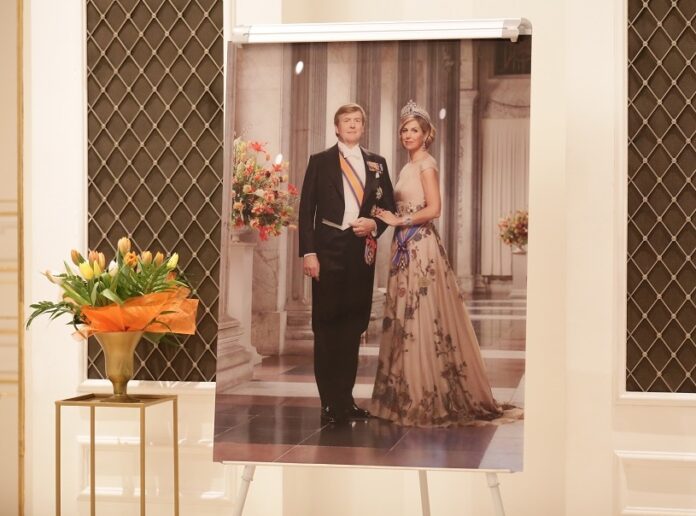Edited by Anna Popper
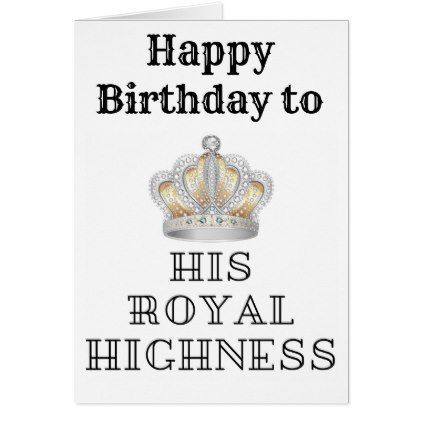
King’s Day – Koningsdag is the national holiday in the Kingdom of the Netherlands, celebrated on 27th April in honour of the birthday of His Majesty King Willem-Alexander, who ascended to the throne in 2013. He is the first male monarch of the Netherlands in 123 years, following a series of reigning queens since 1890.
In celebrate of the illustrious King’s Day, the birthday of His Majesty the King, H.E. Desirée Bonis, Ambassador of the Kingdom of the Netherlands to Hungary, hosted a grand reception at the Corinthia Hotel Budapest.


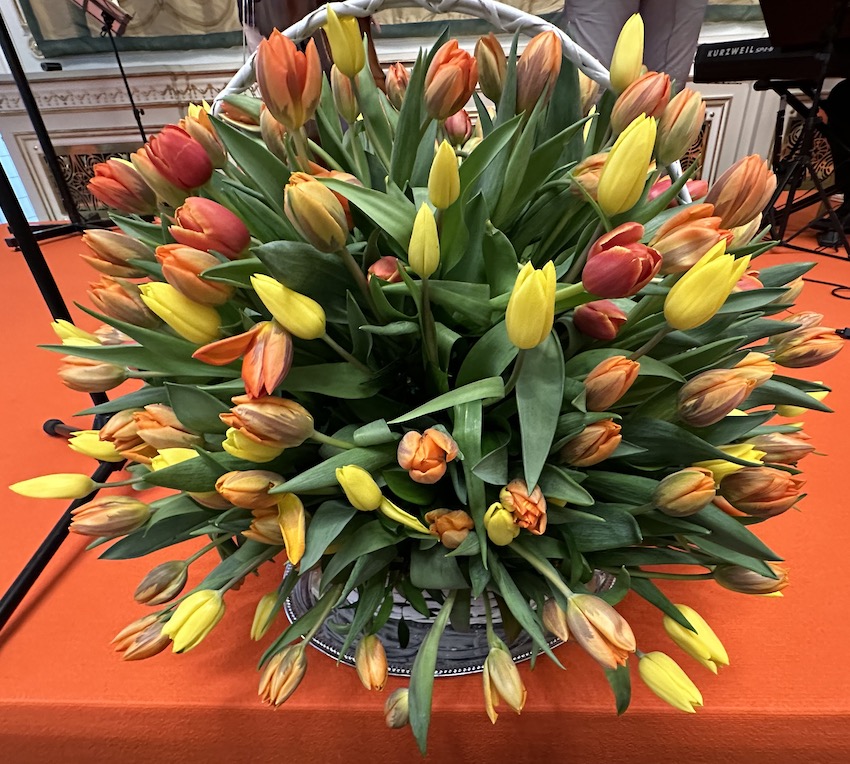
The event was attended by Hungarian officials, representatives from business, cultural, and academic sectors, members of the diplomatic corps, friends and nationals of the Netherlands.









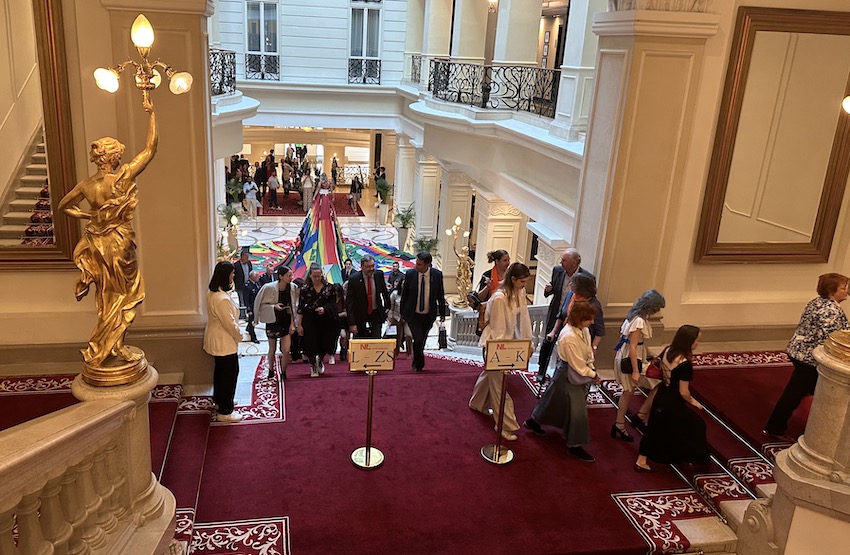
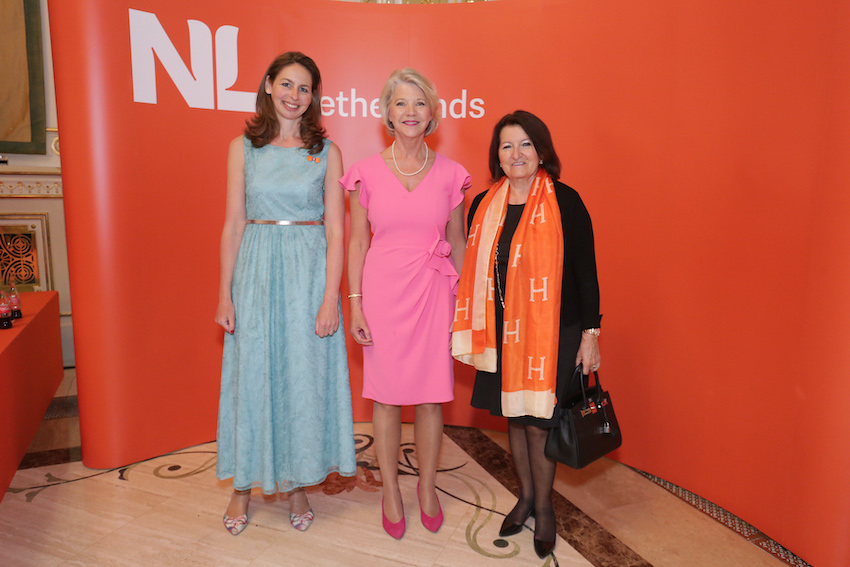
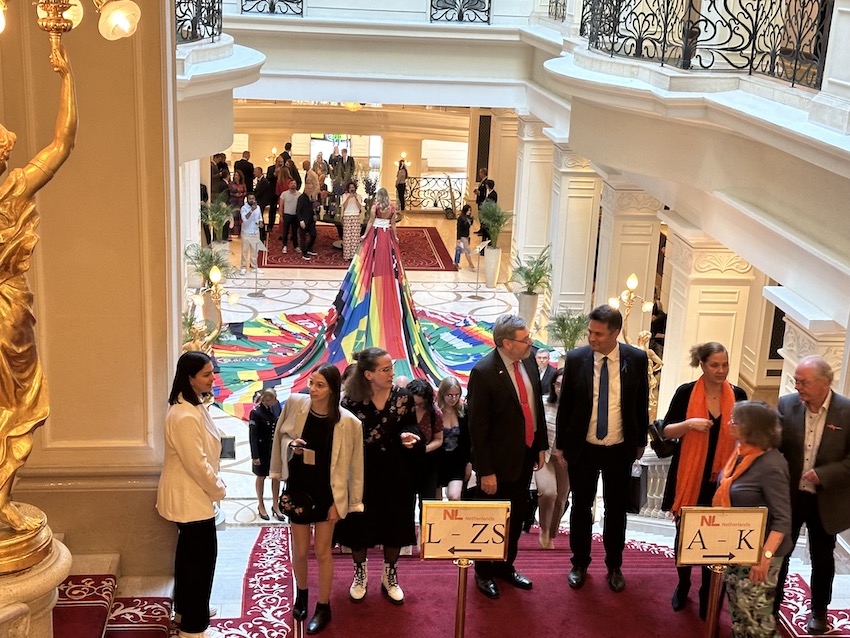
Upon entering the lobby of the prestigious Corinthia Hotel, invitees were greeted by the famous Amsterdam Rainbow Dress, a living work of art worn by a local model. This eye-catching piece, created by the Amsterdam Rainbow Dress Foundation, symbolizes a global snapshot of LGBTIQ+ rights. This giant dress, over 4 meters high, is sewn from the flags of some 70 countries. It travels from Amsterdam to various cities around the world and aims to raise awareness of human rights and LGBTIQ+ issues.
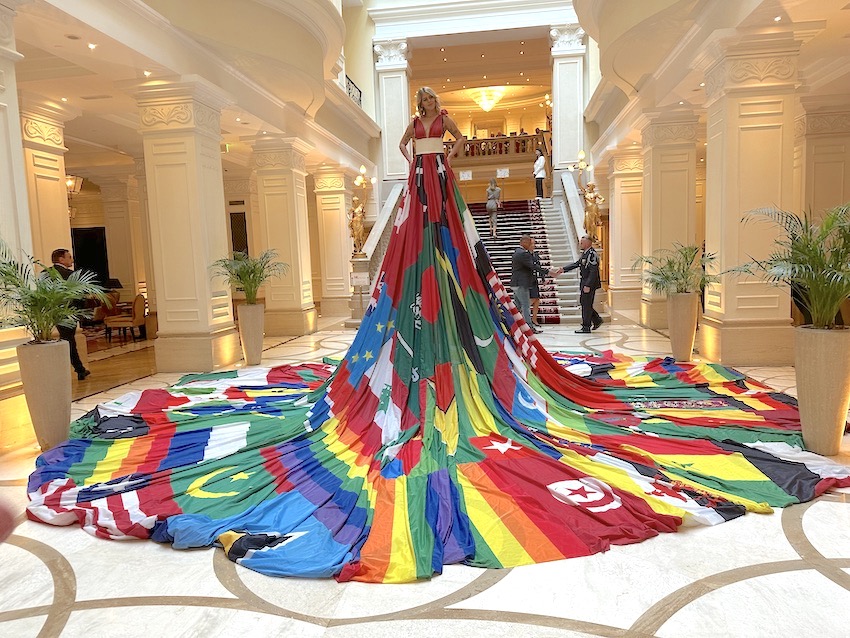
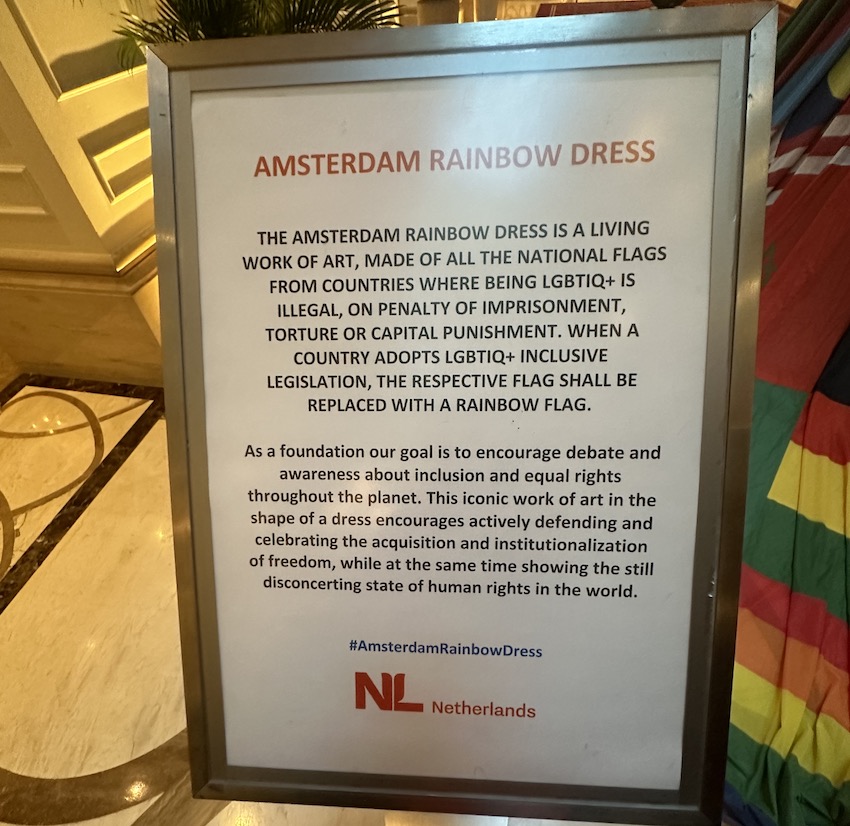
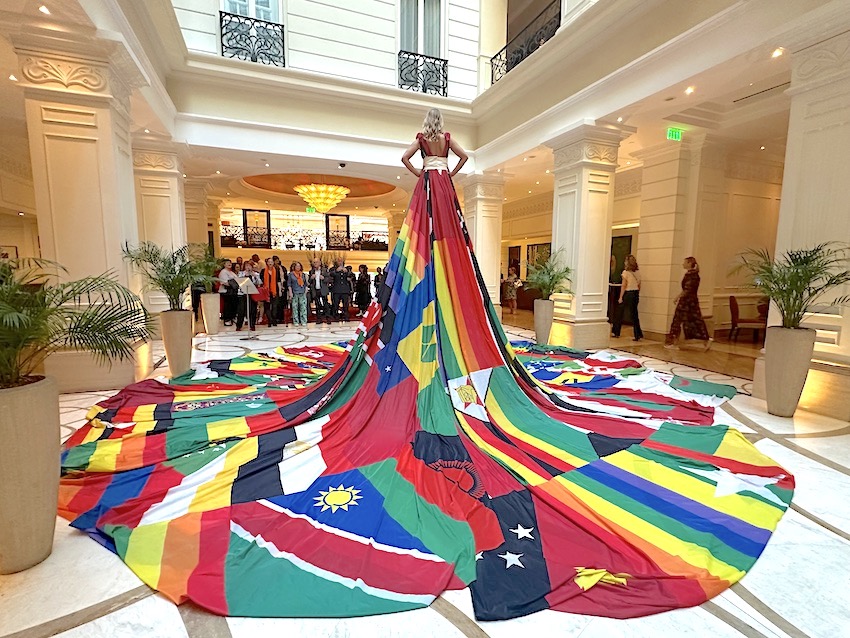
The diplomatic reception was held in the marvellous Grand Ballroom, adorned in orange and featuring the iconic tulips of the Netherlands. The guests, most of whom wore something orange, were warmly welcomed by Ambassador Desirée Bonis and Deputy Head of Mission, Ms. Yvette Szepesi.






The celebration commenced with the national anthems of the Netherlands, Hungary, and the European Union.
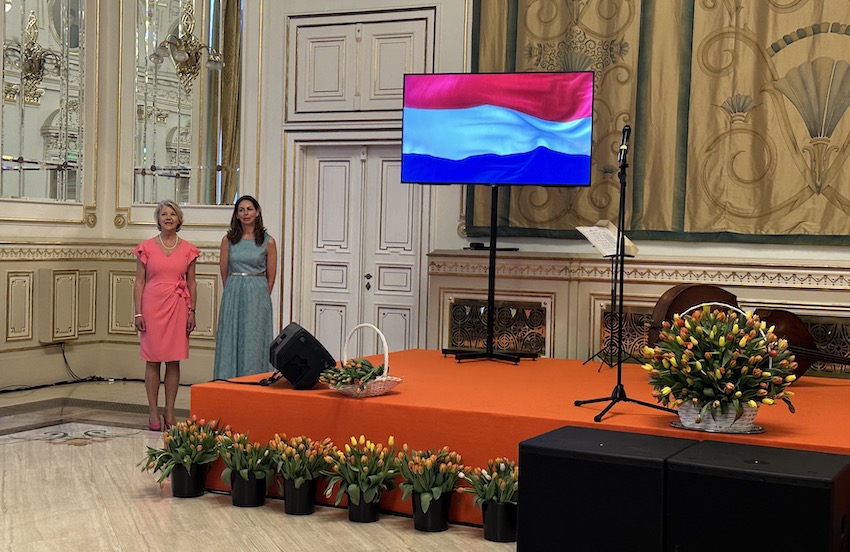

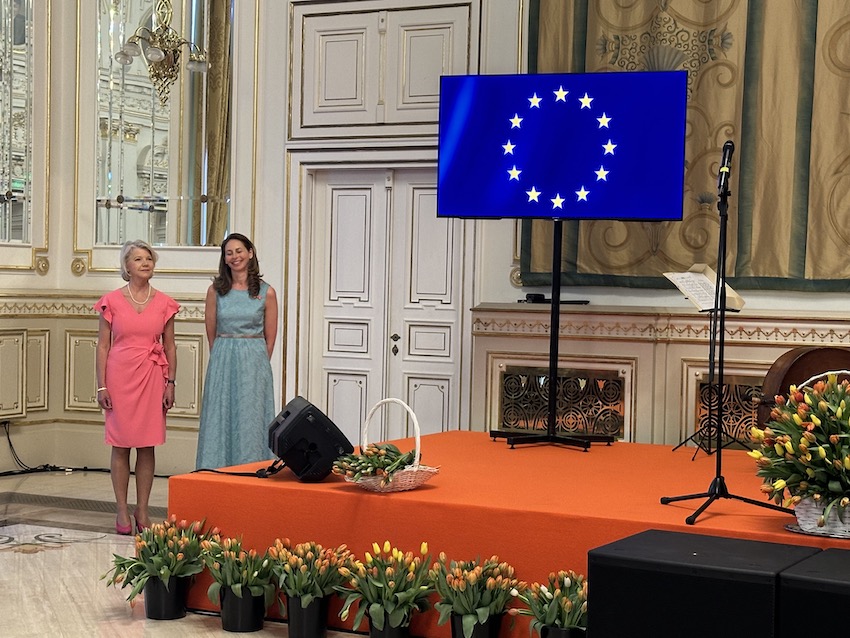

In her speech, the Ambassador of the Kingdom of the Netherlands highlighted the multifaceted relations between the Netherlands and Hungary, which date back to the 17th century. She proudly discussed recent cultural collaborations, notably the 2023 Budapest International Book Festival, where the Netherlands was the Guest of Honour. This event featured dozens of renowned Dutch authors and attracted a record 70,000 visitors.
The Head of Mission also noted that the Netherlands will extend its support during the six-month term as Hungary prepares to take over the rotating Presidency of the Council of the European Union on 1 July 2024. The Netherlands also maintains a strong presence in the Hungarian economic and business sectors.


Ambassador Bonis conveyed her heartfelt appreciation to the sponsors, a conglomerate of esteemed Dutch enterprises thriving in Hungary. She graciously acknowledged their invaluable contributions and emphasized that their generous support was instrumental in making this event possible.
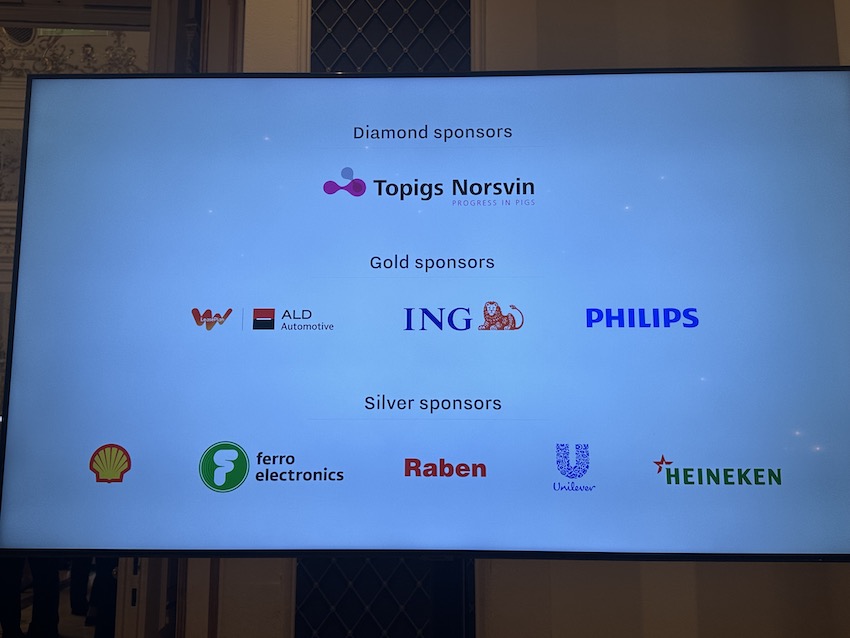

In conclusion, the Ambassador proposed a toast to the vivid relations between the two countries and to the birthday of His Majesty King Willem-Alexander of the Netherlands.

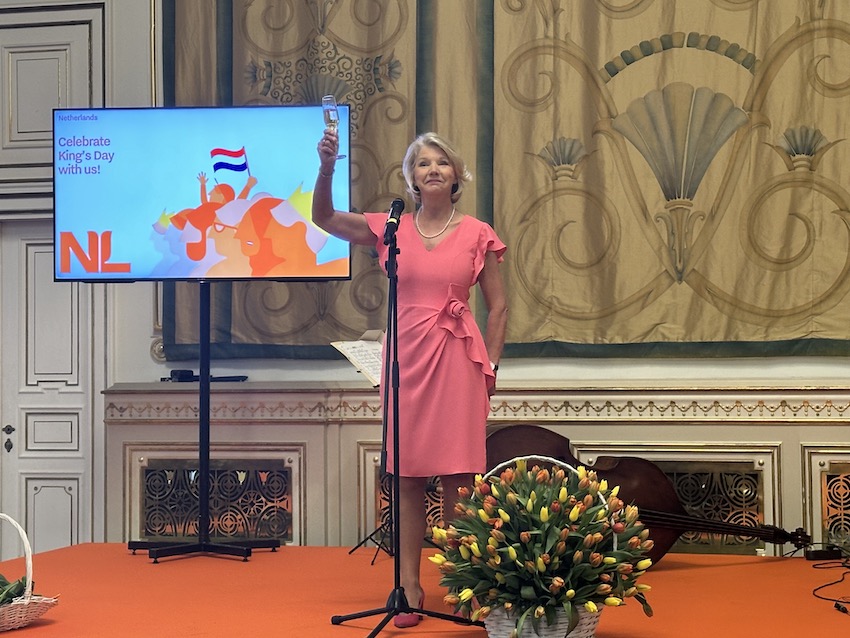
Following the official proceedings, attendees enjoyed live music performances and sampled a variety of renowned Dutch delicacies, including Dutch cheese, Heineken beer, Stroopwafels from Gouda, and many other fine treats.
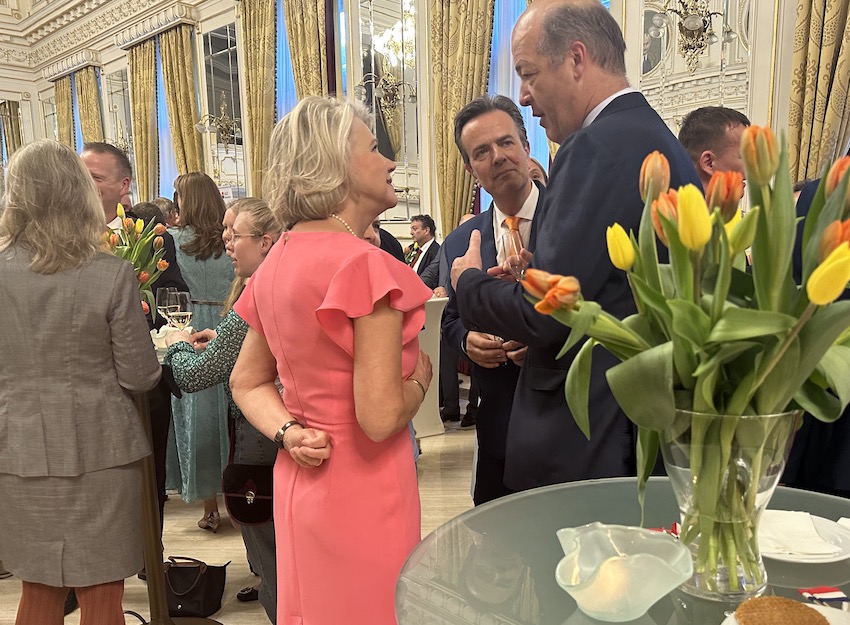
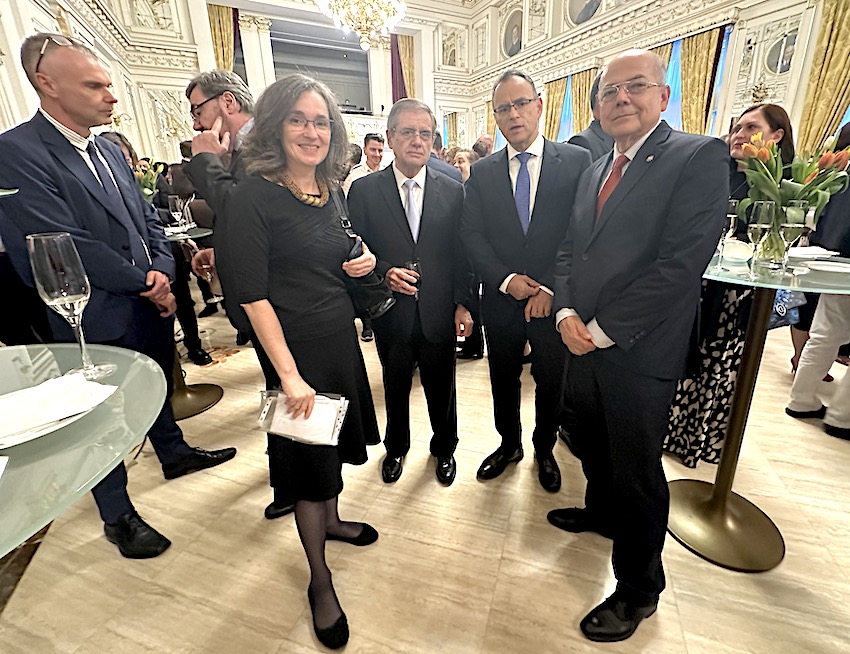
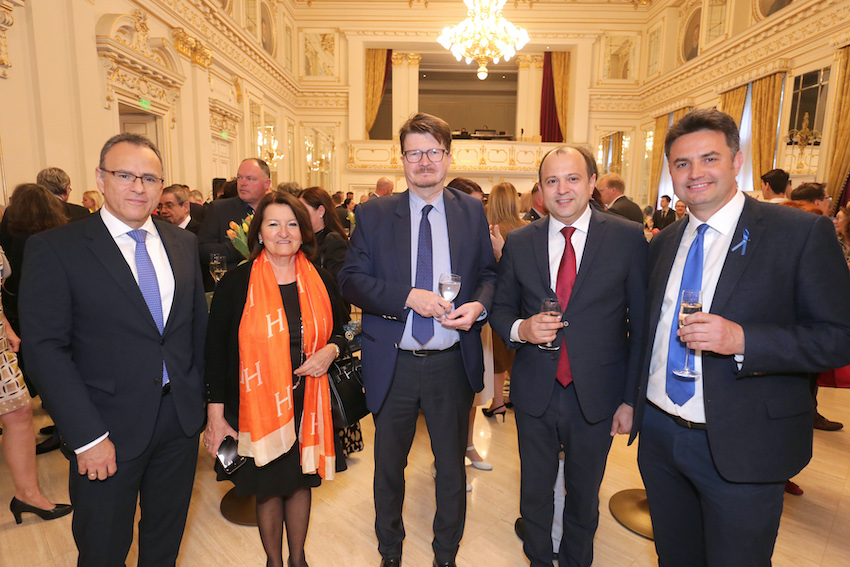

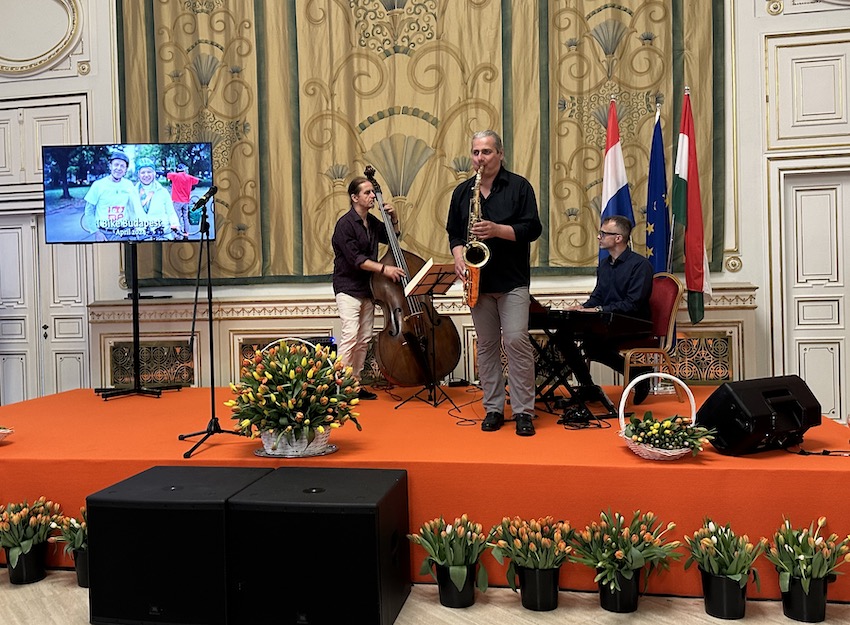
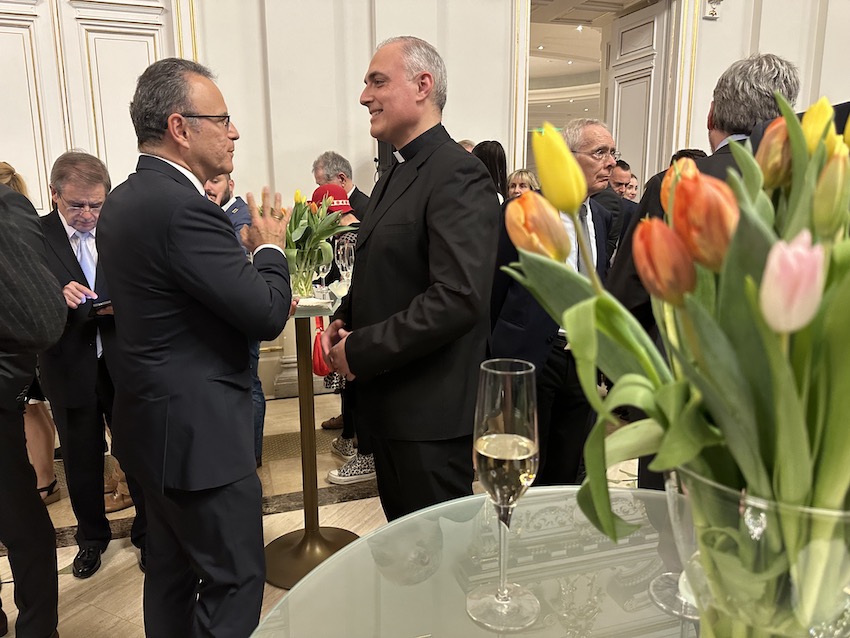
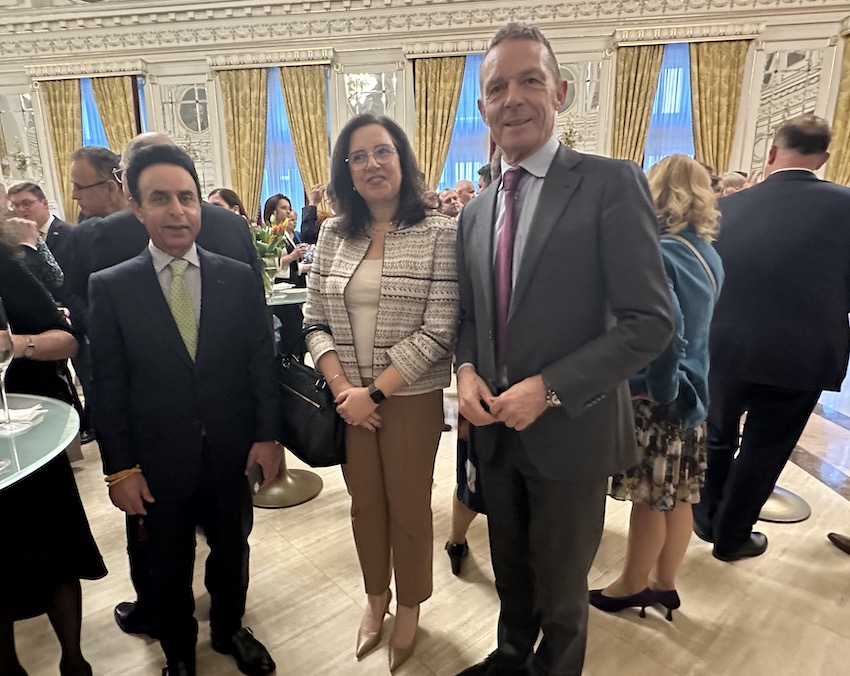



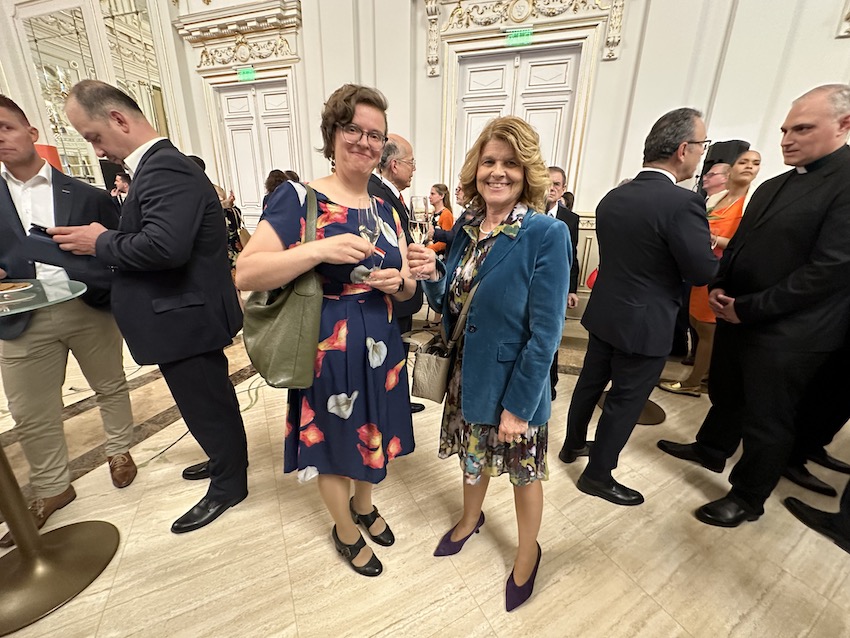
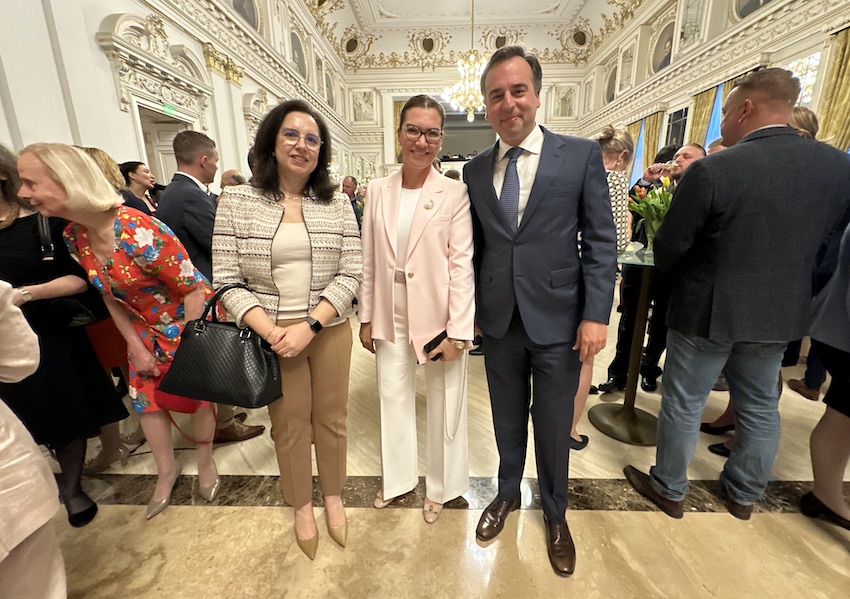
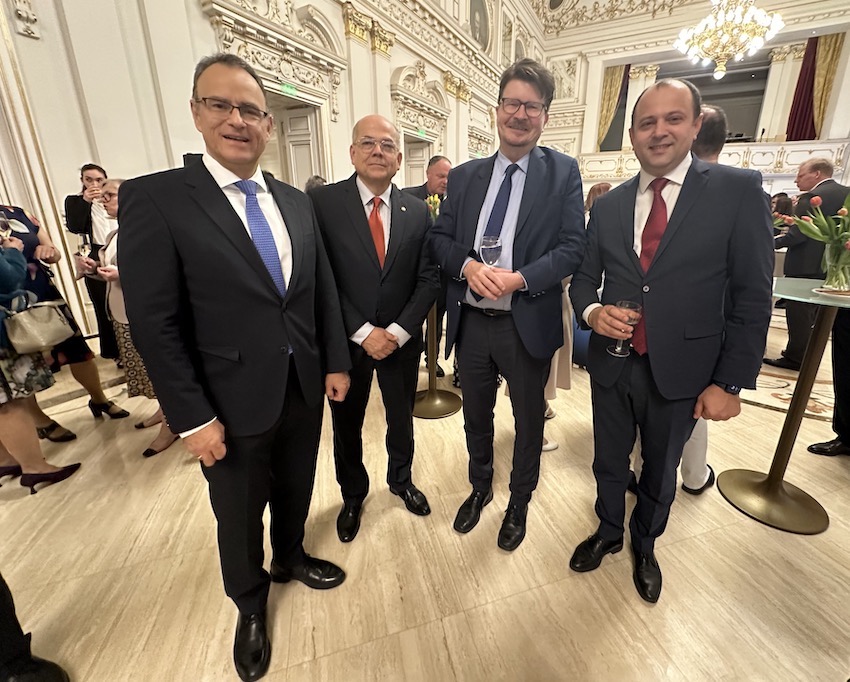


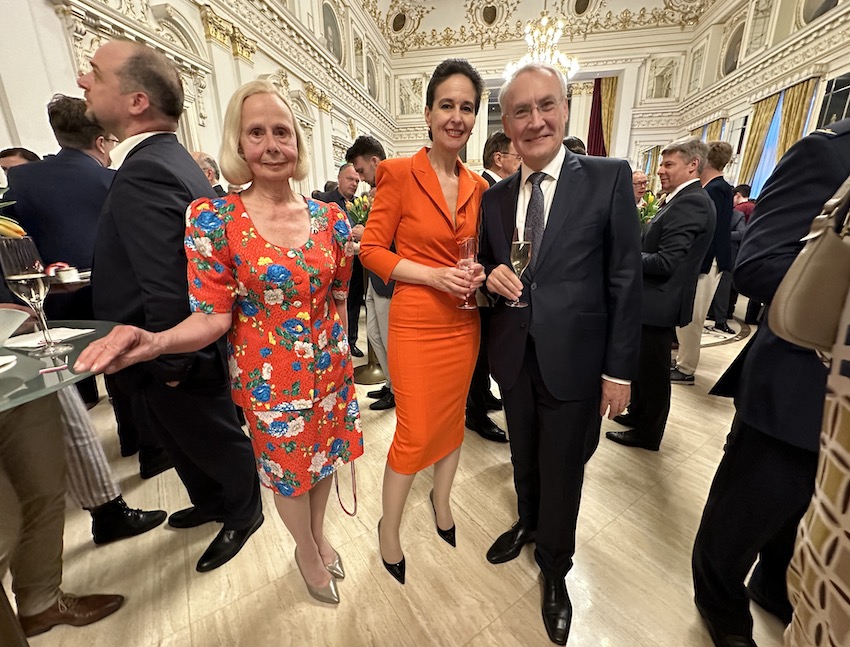
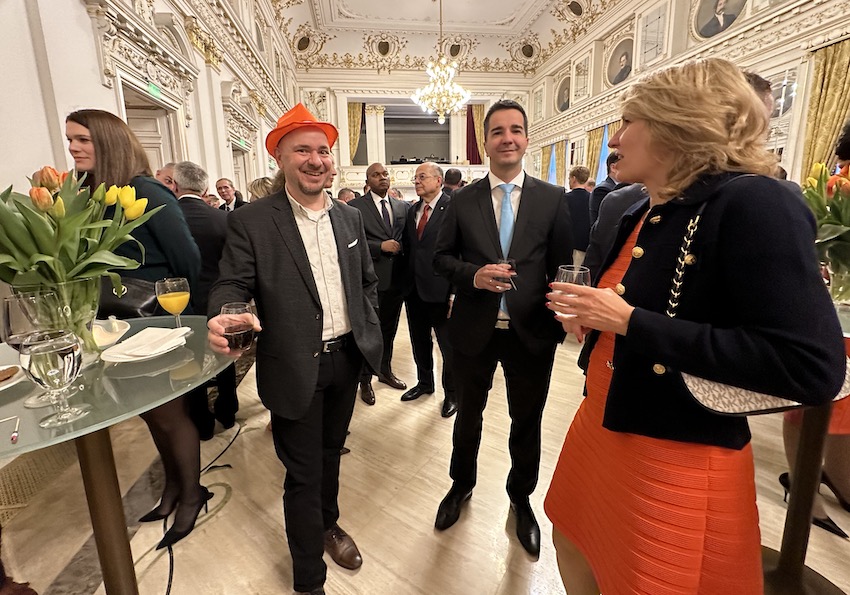
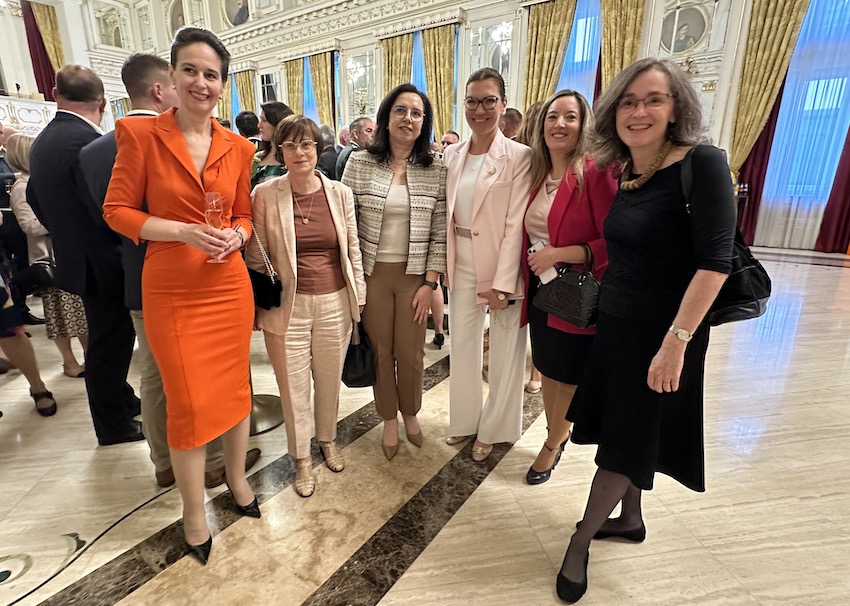


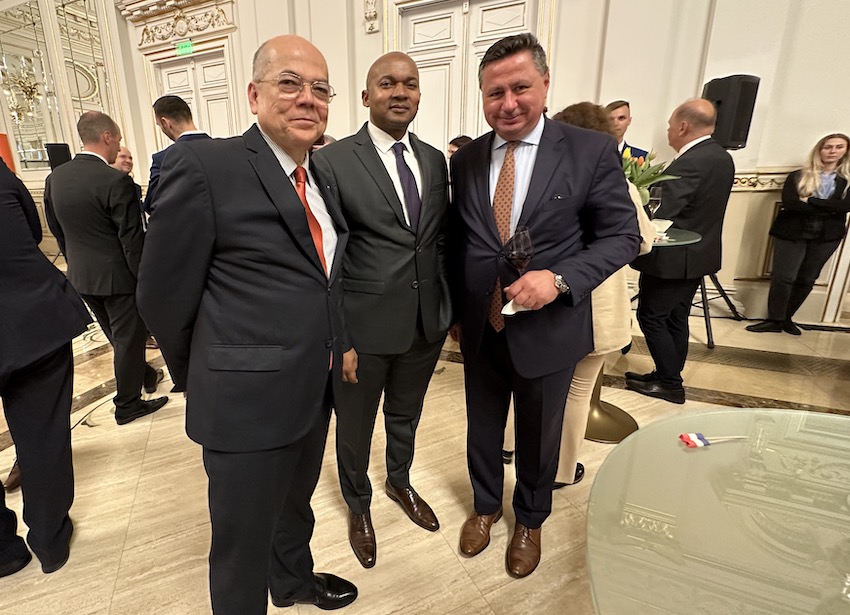
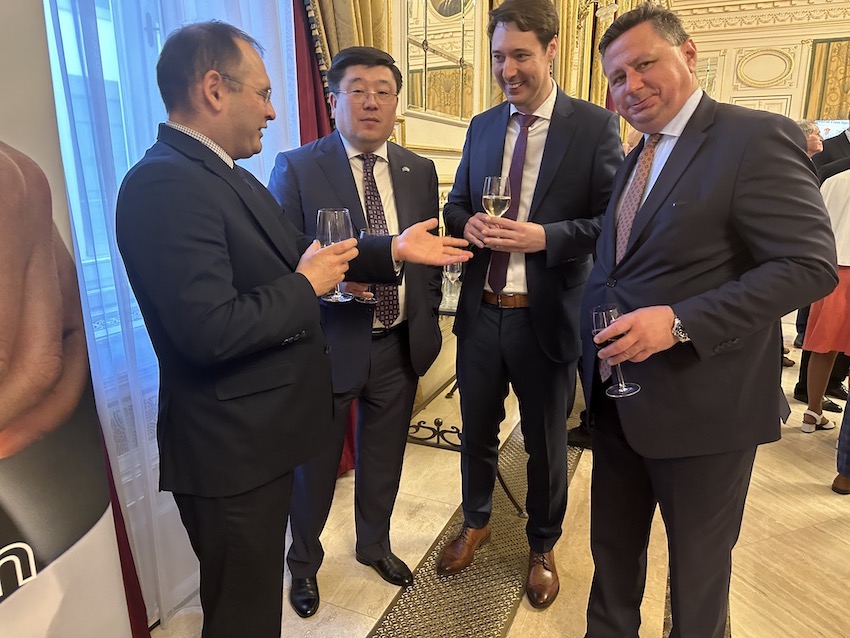
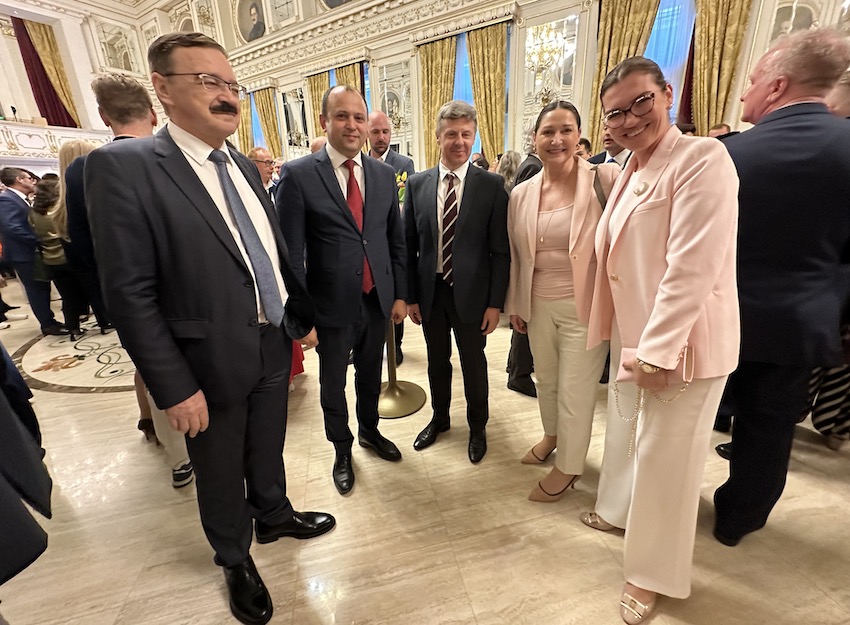
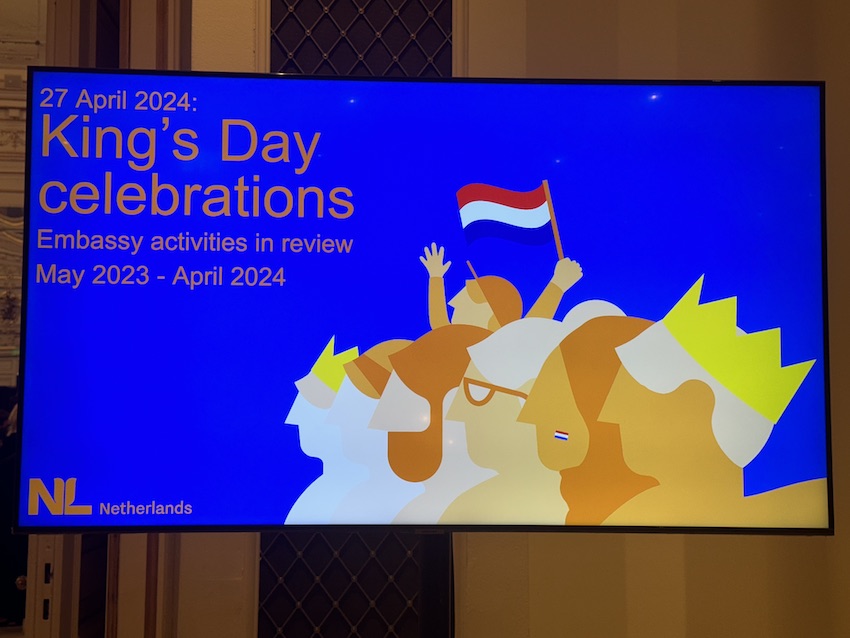
During the King’s Day reception at Corinthia Hotel, the Embassy of the Netherlands in Hungary created an extensive video presentation that was shown to the audience. It featured numerous photographs, illustrating their wide-ranging activities in the fields of economics, politics, culture, science and public diplomacy. The video highlighted their efforts to strengthen cooperation, deepen friendship, foster mutual understanding between the two countries and their peoples and explore new areas of partnership.
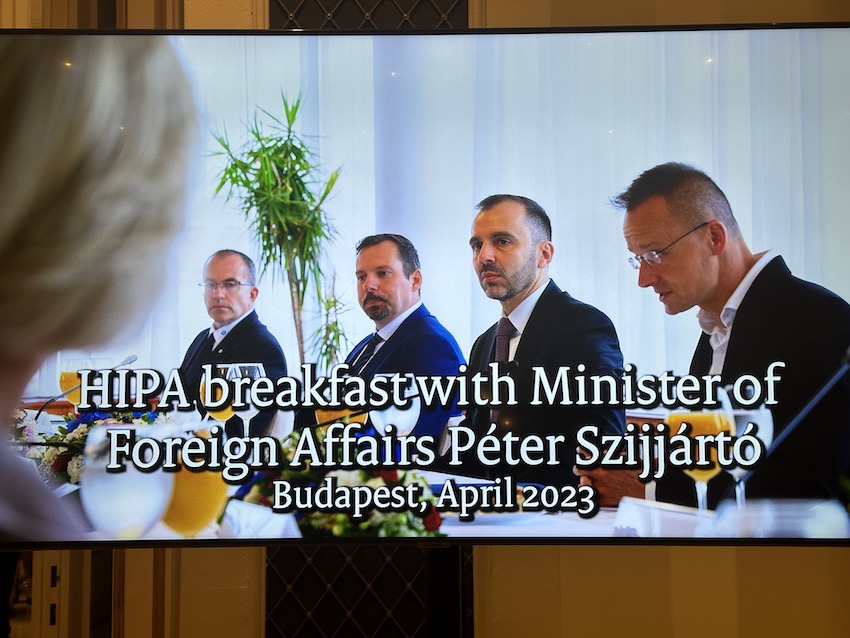
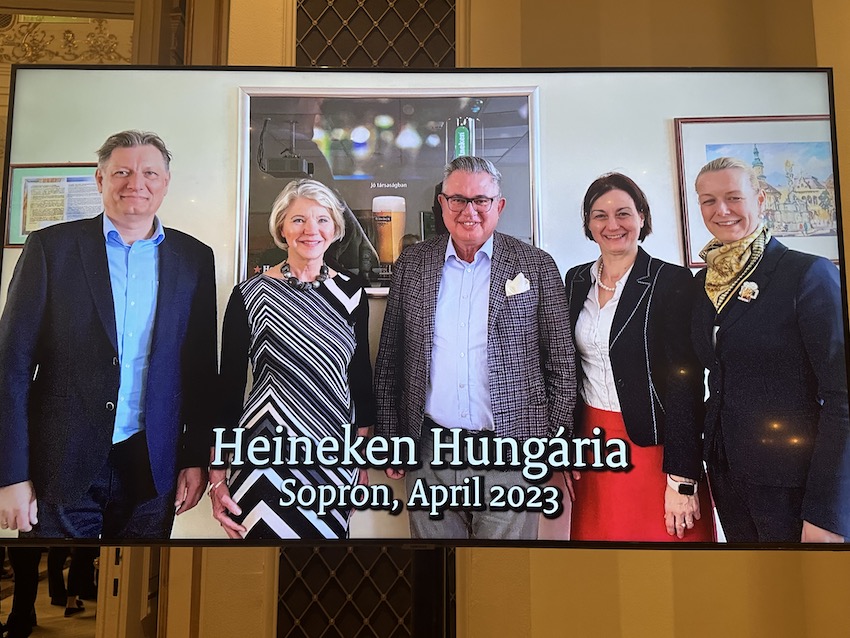
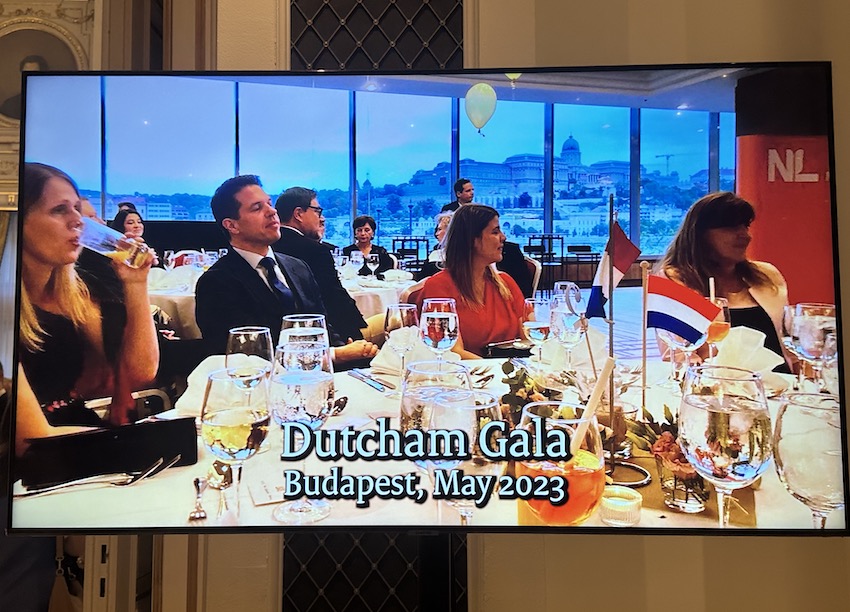

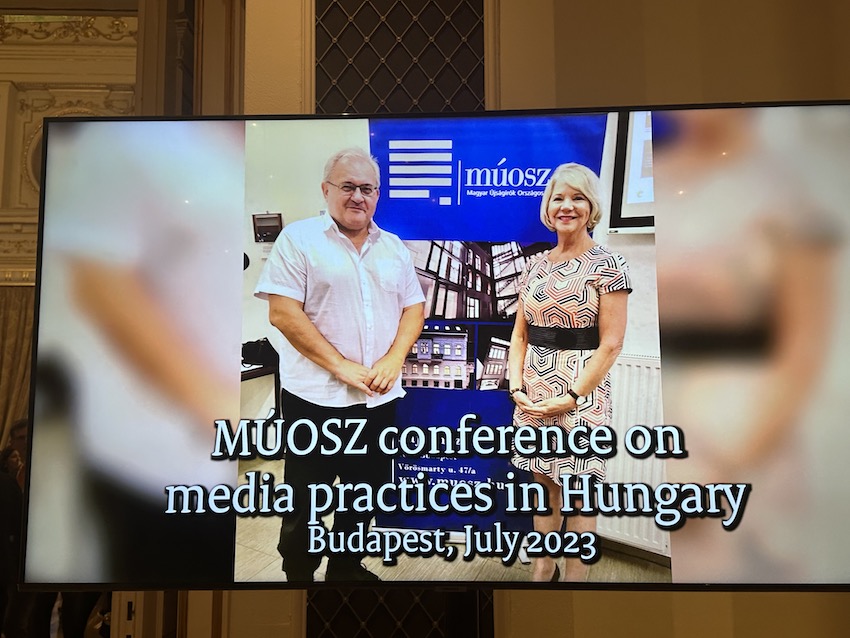
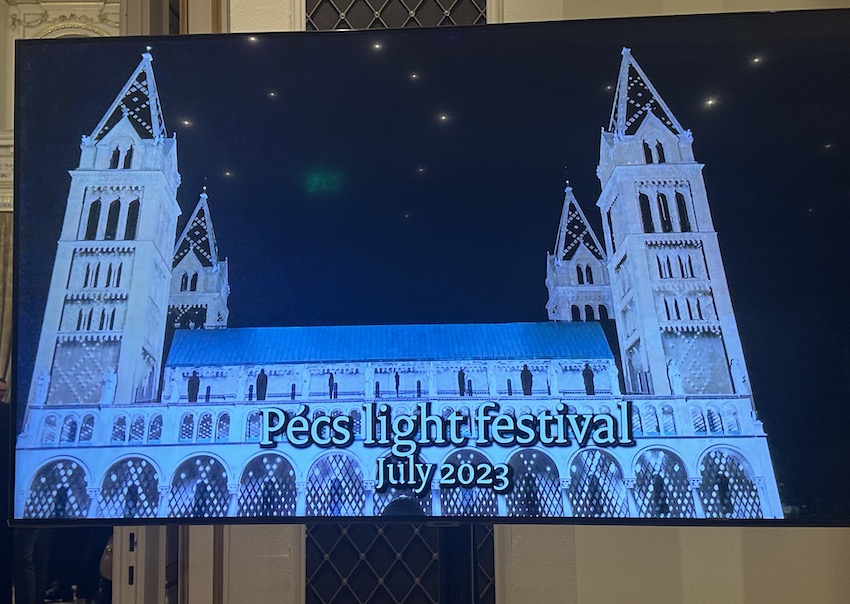
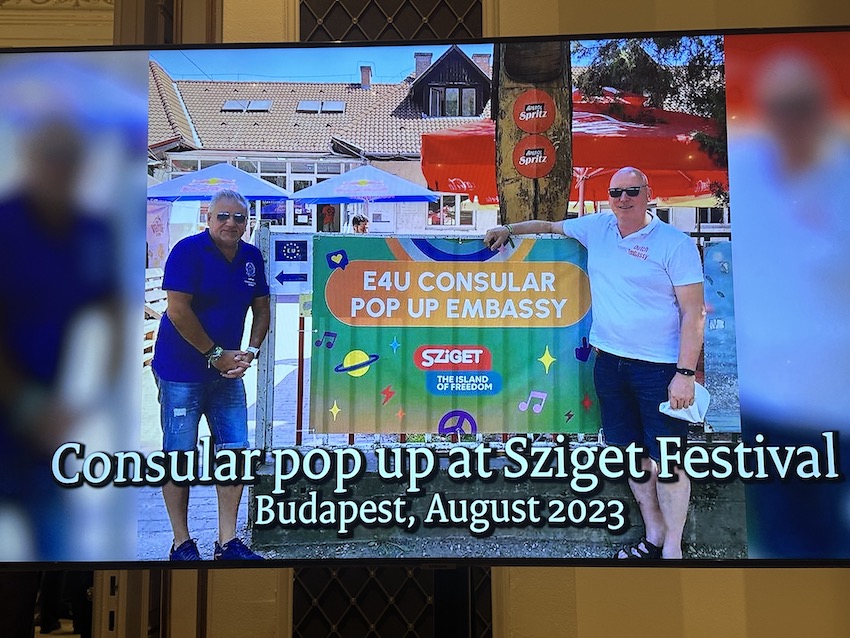
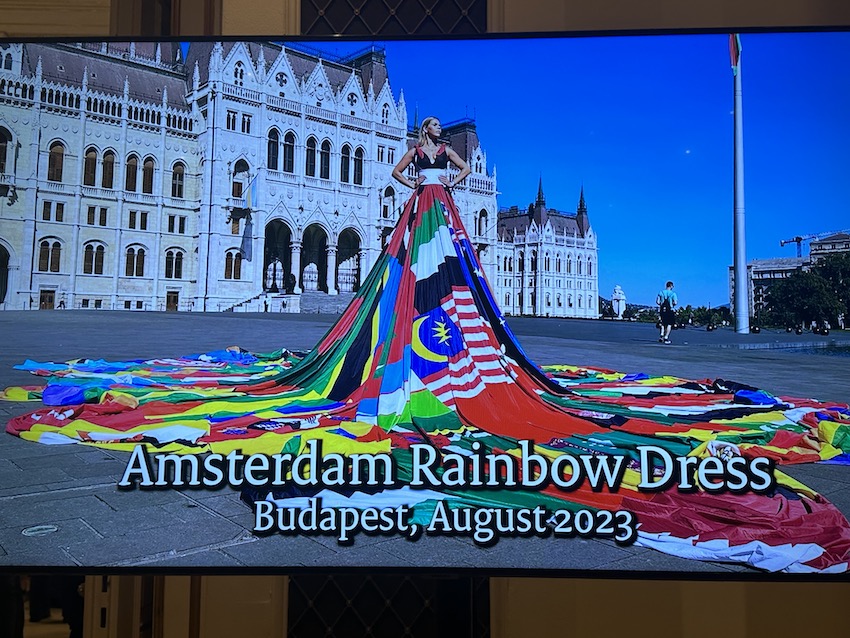
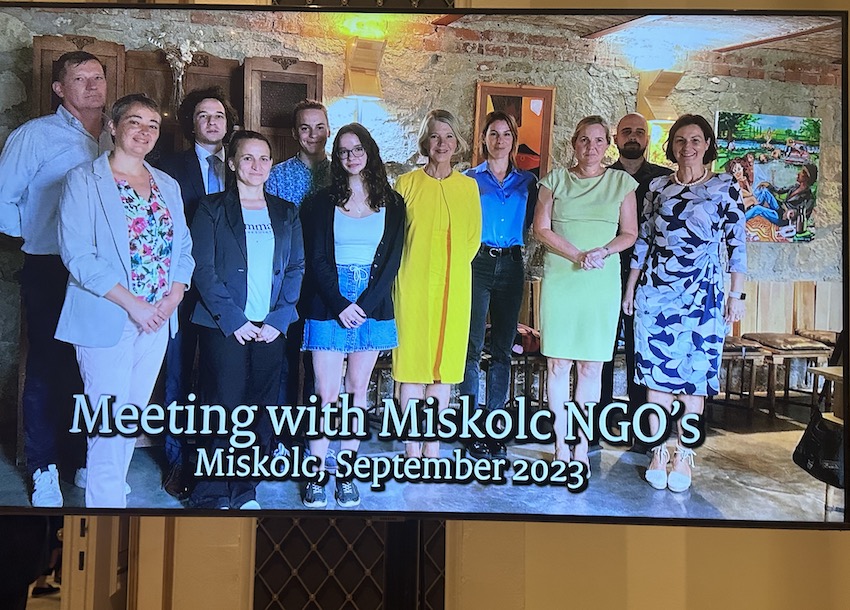
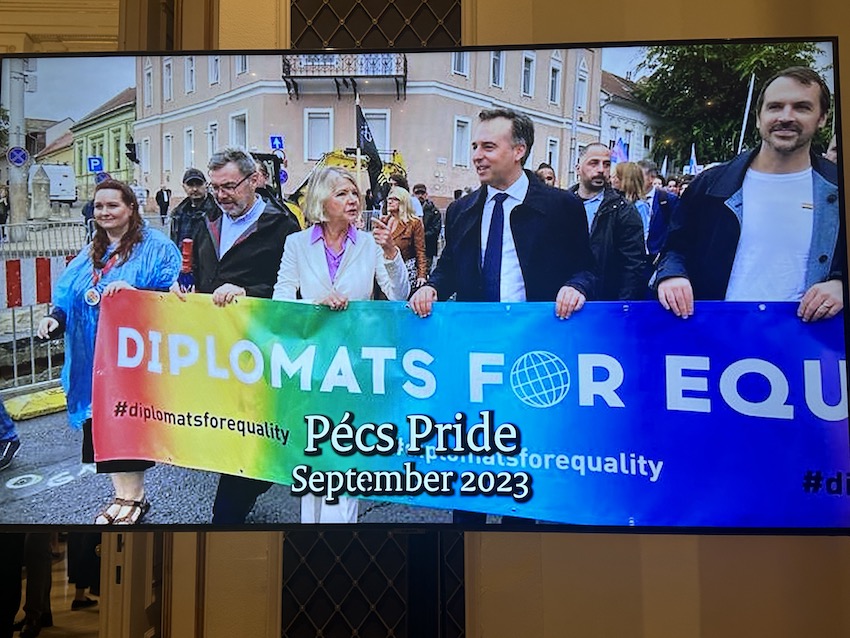

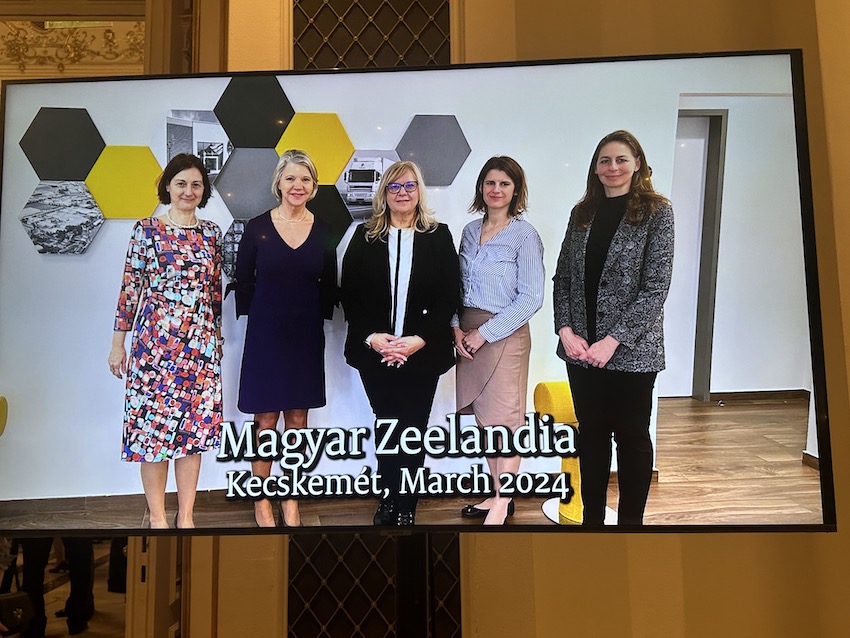
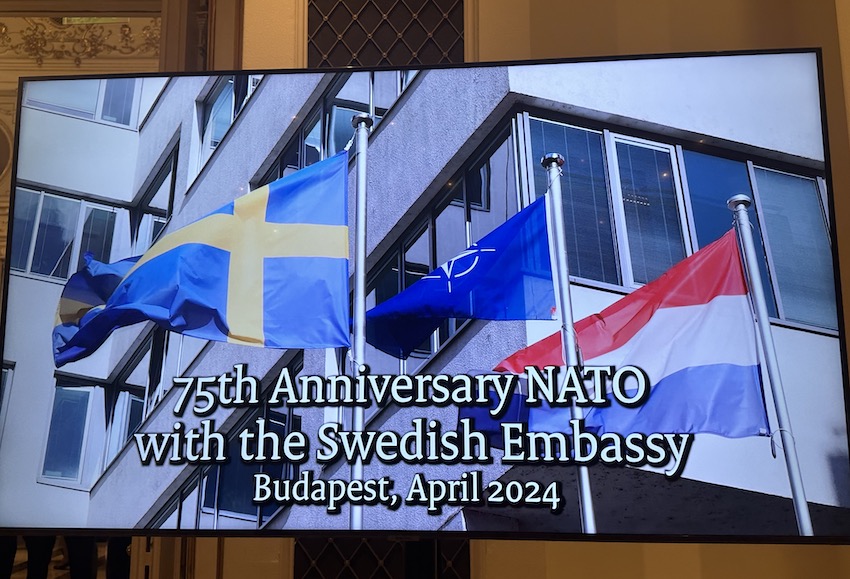

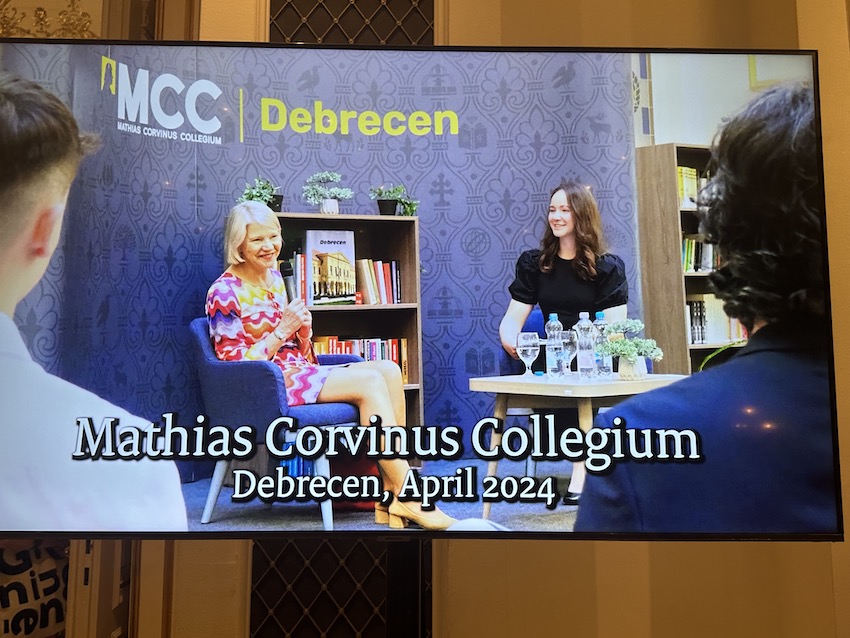
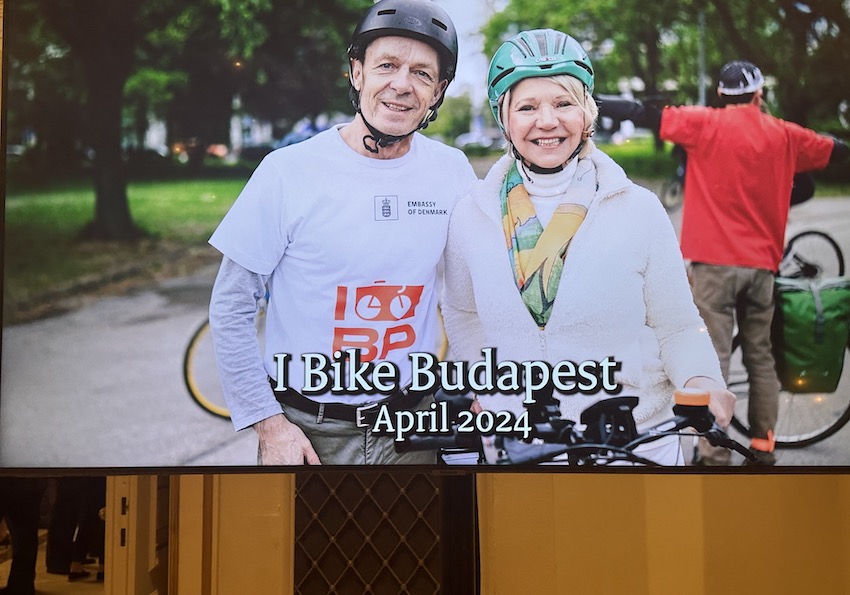
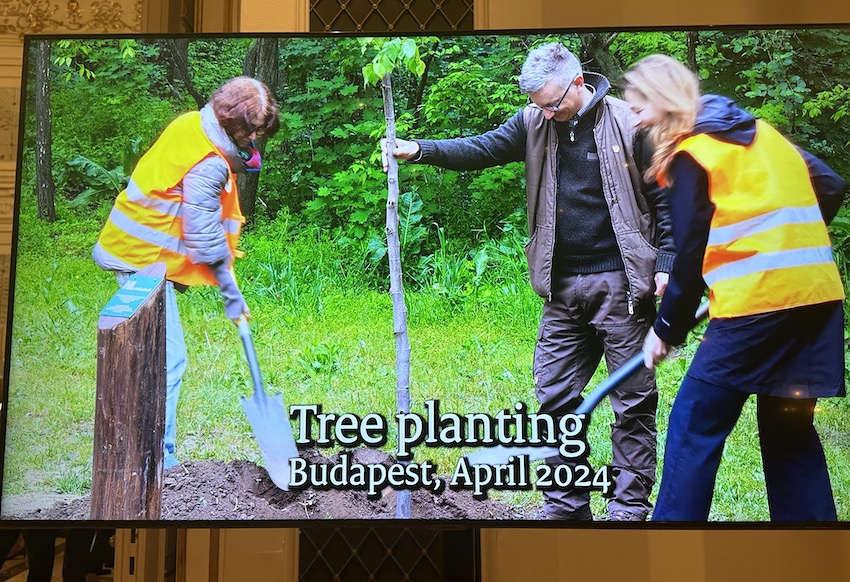
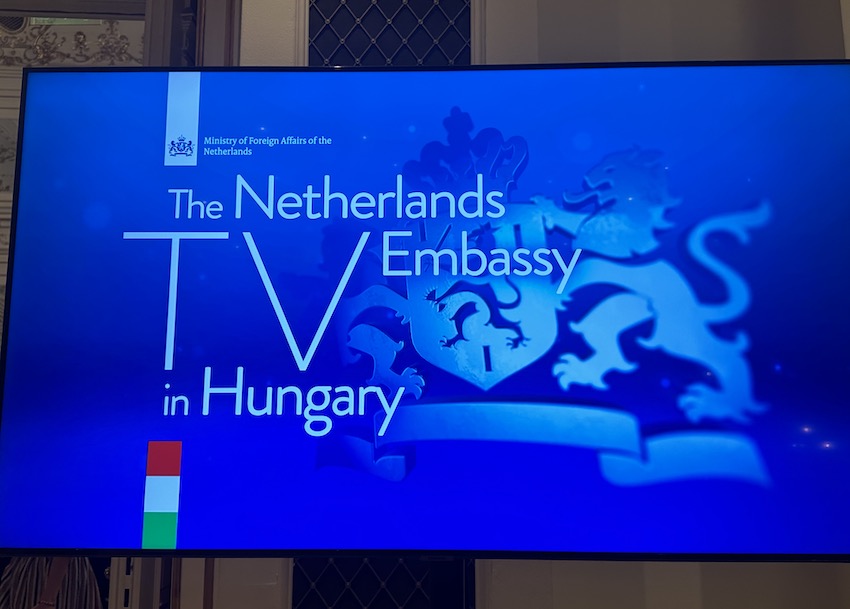
At the end of the reception, guests were presented with beautiful orange colour tulips, which served as a gracious token of appreciation for their presence.


King’s Day – a cherished tradition in the Netherlands
The King’s Day is the biggest event in the Kingdom of the Netherlands. The celebration is marked by a vibrant and joyful atmosphere with street parties, flea markets, music, dance, festivals, fans and various outdoor activities in the Netherlands. And people toast the King with traditional Orange Bitter. All over the streets are awash in orange, the colour that represents the Dutch Royal Family, the House of Orange-Nassau. Despite changes in name and date over the years, the festive spirit of King’s Day has endured.
The Royal Family of the Netherlands, known as the House of Orange-Nassau, plays a significant role in Dutch society, encompassing both ceremonial functions and subtle socio-political influence. They contribute to national unity and a shared sense of identity, serving as a unifying symbol for the population. Despite the country’s complex political landscape, the monarchy offers a stable, non-partisan figurehead that represents continuity and tradition. The monarch is perceived as a figure above daily politics, embodying national values and acting as a neutral representative of all Dutch citizens.
Wearing something orange is a must on King’s Day. This tradition stems from the royal family’s name, the House of Orange (Huis van Oranje), making orange the national colour, although it does not appear on the country’s flag.
The tradition of orange colour on King’s Day goes back to Willem of Orange (1533-1584). Born Willem of Nassau-Dillenburg in 1533, he inherited the Principality of Orange in the south of France at the age of 11 and became Prince Willem of Orange-Nassau, or Prince of Orange. He led the Dutch revolt against Spain during the 80 Years’ War (1568-1648), seeking independence for the Netherlands. In 1572 he conquered the city of Den Briel (Brielle), the first town in the Netherlands to be liberated from Spanish rule. This event marked people’s first use of orange as a symbolic colour that became synonymous with the Netherlands. Today the Dutch wear orange as a symbol of national identity, unity and pride.
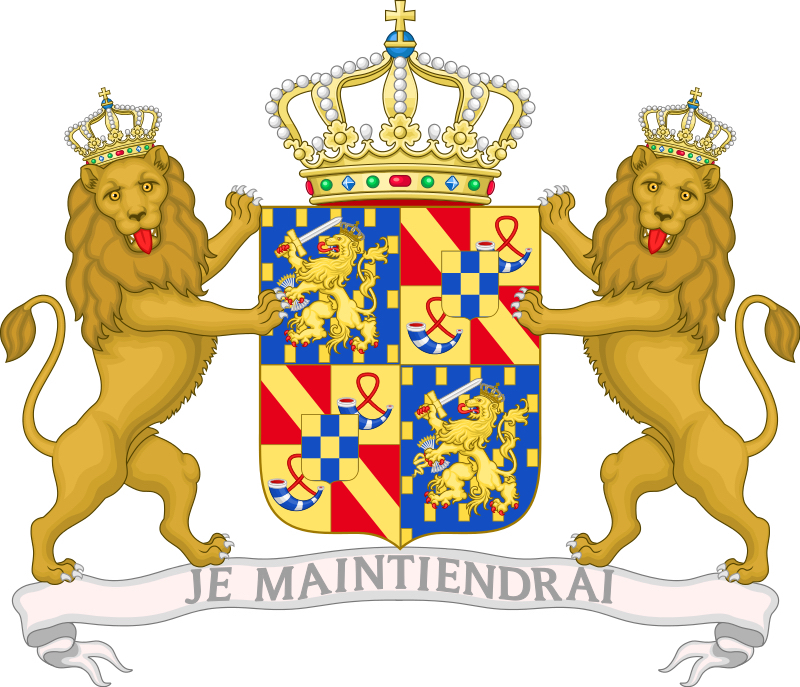
Willem of Orange, the esteemed founder of the House of Orange-Nassau and the United Provinces, earned the title “Father of the Fatherland” (Vader des Vaderlands). The motto “Je maintiendrai” (I shall maintain) and the emblem of the bugle horn, both prominently featured in the House of Orange’s coat of arms, trace their origins to him. These symbols embody his profound commitment to upholding the virtues of nobility and honour, while also pledging to preserve the prestige of his name. Furthermore, they signify his unwavering dedication to uphold the principles of honour, faith, and divine and secular laws, including those of God, the King, his friends, and himself.
Each year on King’s Day it is customary for the Royal family to visit a different Dutch municipality. This tradition offers locals a unique opportunity to showcase their city and surrounding areas, while also providing a chance to meet the King and his family, fostering direct engagement with local communities during the celebration. In 2024, the Royal Family attended King’s Day in Emmen, a town in the province of Drenthe.
Source: Embassy of the Netherlands in Budapest
Photos by the Embassy of the Netherlands in Budapest, DPA, and Facebook of King Willem-Alexander and Queen Máxima of the Netherlands

